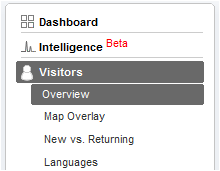According to a July 2009 survey conducted by InformationWeek Analytics and Intelligent Enterprise, organizations are continuing to reduce the number of BI tools and many are moving to a single standard.
When the survey was done in 2007, a third of the business technology professionals said that their company had standardized on one or a few BI tools deployed throughout the company. Two years later, the response to that question went up to almost half.
Here are some other findings:
- Deploying BI tools on a project-by-project basic dropped from 22% to 19%
- Having many BI tools scatttered through departments, operations, and locations dropped from 25% to 18%
- Deploying BI tools as part of other technology initiatives dropped from 17% to 14%
Doug Henschen, editor in chief, says that while BI tool consolidation and standardization is not just marketing hype, no software vendor produces a single stack of technology that can meet all of the BI needs of an organization. That makes picking a single vendor’s product as a BI standard difficult.
Doug adds:
“Another key trend revealed in our survey is that businesses are forging new BI agendas. Yes, the …
According to a July 2009 survey conducted by InformationWeek Analytics and Intelligent Enterprise, organizations are continuing to reduce the number of BI tools and many are moving to a single standard.
When the survey was done in 2007, a third of the business technology professionals said that their company had standardized on one or a few BI tools deployed throughout the company. Two years later, the response to that question went up to almost half.
Here are some other findings:
- Deploying BI tools on a project-by-project basic dropped from 22% to 19%
- Having many BI tools scatttered through departments, operations, and locations dropped from 25% to 18%
- Deploying BI tools as part of other technology initiatives dropped from 17% to 14%
Doug Henschen, editor in chief, says that while BI tool consolidation and standardization is not just marketing hype, no software vendor produces a single stack of technology that can meet all of the BI needs of an organization. That makes picking a single vendor’s product as a BI standard difficult.
Doug adds:
“Another key trend revealed in our survey is that businesses are forging new BI agendas. Yes, the longstanding challenges of accessing data and developing reports are still there, as is the push to share BI more broadly across the enterprise. But there’s growing interest behind analytics, embedded BI, and search-style querying.
New business requirements and new vendor capabilities make it unlikely an organization will settle on a single BI vendor. But consolidating around two or three vendors can help meet requirements and get the resource- and time-savings of standardization.”
- There are thousands of legacy programs!
- We don’t have the resources to convert these programs!
- There are hundreds of users impacted!
- There are some power users who don’t want to change!
- There are years of work effort involved!
- We would have to spend millions of dollars!
- Reduce license costs
- Reduce internal support costs
- Reduce human resource challenge of scarce skillsets
- Reduce the number of vendors with whom you must work
- Improve productivity (e.g., no disputes about or research into BI tool selection)
- Improve BI project success (consistent usage of the approved product)
- Modernize to web-based and Microsoft Office-integrated technology
For a limited time, you can get a free copy of this BI report at InformationWeek.







